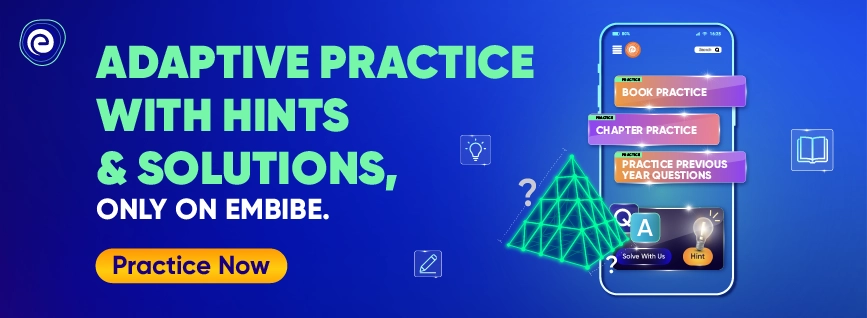- Written by nikhil
- Last Modified on 20-02-2023
Arunachal Board Class 6 Exam 2023
The Board of Secondary Education of Arunachal Pradesh is responsible for creating guidelines and organising the Arunachal Pradesh State Board Examination to assess and improve the quality of education provided to children. These exams help children grow as individuals, instilling them with values, extraordinary thinking, self-evaluation, and the ability to overcome failures while also instilling positivity in them to increase the quality of education.
The exam also assists teachers in determining a student’s mental capacity and identifying the areas of weakness. According to the ‘ no-detention policy,’ school students should be promoted even if they fail their annual exams. Based on the Right to Education Act, all students in Classes 1 through 8 shall be advanced to the next class regardless of their examination results.
Arunachal Board Class 6 Exam Summary
Exams and tests are excellent methods to estimate what students have learned in specific subjects. They also help to identify students’ intrinsic strengths and weaknesses along with their interest levels in different subjects. Check out the table below to get all the important information about the 6th Arunachal Pradesh board exam:
| Conducting Body |
Board of Secondary Education of Arunachal Pradesh (ARPEDU) |
| Commonly Known As |
ARPEDU |
| Type |
Governmental Board of School Education |
| Headquarters |
Itanagar, Arunachal Pradesh, India |
| Subjects |
Languages: English, and an optional language as per students interest (e.g., Hindi, Urdu, Sanskrit, etc.)
Main Subjects: Mathematics, Science, Social Science and EVS |
Arunachal Board Official Website Link
http://education.arunachal.gov.in/
Arunachal Board Class 6 Exam Pattern
Arunachal Pradesh Board Class 6 exams are conducted in the format of summative and formative assessments. Summative and Formative Evaluations are held three times a year for each of the subjects. Students are advised to go through the below-mentioned exam pattern carefully and accordingly start studying. Check out the table below for the timetable and mark distribution. Students can check Arunachal Board Class 6 exam pattern below.
| Subject |
Type of Evaluation |
Marks |
| First Language |
First Summative Evaluation |
15 |
| Internal Formative Evaluation |
100 |
| Second Summative Evaluation |
25 |
| Internal Formative Evaluation |
100 |
| Third Summative Evaluation |
70 |
| Internal Formative Evaluation |
100 |
| Second Language – English |
First Summative Evaluation |
15 |
| Internal Formative Evaluation |
100 |
| Second Summative Evaluation |
25 |
| Internal Formative Evaluation |
100 |
| Third Summative Evaluation |
70 |
| Internal Formative Evaluation |
100 |
| Mathematics |
First Summative Evaluation |
15 |
| Internal Formative Evaluation |
100 |
| Second Summative Evaluation |
25 |
| Internal Formative Evaluation |
100 |
| Third Summative Evaluation |
70 |
| Internal Formative Evaluation |
100 |
| Science and Environment |
First Summative Evaluation |
15 |
| Internal Formative Evaluation |
100 |
| Second Summative Evaluation |
25 |
| Internal Formative Evaluation |
100 |
| Third Summative Evaluation |
70 |
| Internal Formative Evaluation |
100 |
| Geography and Environment |
First Summative Evaluation |
15 |
| Internal Formative Evaluation |
100 |
| Second Summative Evaluation |
25 |
| Internal Formative Evaluation |
100 |
| Third Summative Evaluation |
70 |
| Internal Formative Evaluation |
100 |
| History and Environment |
First Summative Evaluation |
15 |
| Internal Formative Evaluation |
100 |
| Second Summative Evaluation |
25 |
| Internal Formative Evaluation |
100 |
| Third Summative Evaluation |
70 |
| Internal Formative Evaluation |
100 |
| Health and Physical Environment |
First Summative Evaluation |
15 |
| Internal Formative Evaluation |
100 |
| Second Summative Evaluation |
25 |
| Internal Formative Evaluation |
100 |
| Third Summative Evaluation |
70 |
| Internal Formative Evaluation |
100 |
After qualifying for the multiple levels of Summative and Formative evaluation throughout the year, all students are normally promoted to the next higher class.
If a student receives a score of less than 25% in either the Summative or Formative Evaluation or both, the student is given 1-2 months to improve in all categories (both Summative and Formative) before being tested again. This practice is repeated until the student achieves a score of 25% or higher and is promoted to the next higher class. As a result, all grade 6 students studying under the Arunachal Pradesh Board of Secondary Education are eligible for an upgrade to Class 7.
Arunachal Board Class 6 Summative Assessment Grading System
| Grade |
Mark Percentage |
| A+ |
90% – 100% |
| A |
80% – 89% |
| B+ |
70% – 79% |
| B |
60% – 69% |
| C+ |
45% – 59% |
| C |
25% – 44% |
| D |
Below 25% |
Exam Syllabus for Class 6 Arunachal Pradesh Board
The main subjects for the 6th Arunachal Pradesh Board are Maths, Science, Environmental Studies (EVS), and Social Science. Apart from these subjects, students also have languages including English, Hindi, and Urdu. Following is the subject-wise syllabus provided for your convenience:
Arunachal Pradesh Board Class 6 Science Syllabus
Science is studying, comprehending, and explaining our natural, physical world as well as the rest of the universe. It entails developing scientific knowledge, understanding, and explanations in students by generating and testing ideas, acquiring evidence (for example, by making observations), conducting investigations and modelling, and sharing and debating with others. Hence, it is one of the most important subjects in the curriculum. The Science syllabus for Class 6 Arunachal Pradesh Board can be found in the table below:
| Chapters |
Names |
Subjects |
| Chapter 1 |
Food: Where Does it Come From? |
Biology |
| Chapter 2 |
Components of Food |
| Chapter 3 |
Fibre to Fabric |
Chemistry |
| Chapter 4 |
Sorting Materials into Groups |
| Chapter 5 |
Separation of Substances |
| Chapter 6 |
Changes Around Us |
| Chapter 7 |
Getting to Know Plants |
Biology |
| Chapter 8 |
Body Movements |
| Chapter 9 |
The Living Organisms and their Surroundings |
| Chapter 10 |
Motion and Measurement of Distances |
Physics |
| Chapter 11 |
Light, Shadows and Reflections |
| Chapter 12 |
Electricity and Circuits |
| Chapter 13 |
Fun With Magnets |
| Chapter 14 |
Water |
Chemistry |
| Chapter 15 |
Air Around Us |
| Chapter 16 |
Garbage In, Garbage Out |
Biology |
Arunachal Pradesh Board Class 6 Social Science Syllabus
The study of Social Science enables students to grow up as engaged, responsible, and reflective members of society by offering important information and knowledge, skills, and attitude. It also teaches students how to use literature, technology, and other readily available community resources to address societal and global issues.
As a result, we may conclude that including Social Studies within the school curriculum guarantees that children receive a well-rounded education. The Social Science syllabus for Class 6 Arunachal Pradesh Board can be found in the table below:
| History |
Geography |
Political Science |
| What, Where, How, and When? |
The Earth in the Solar System |
Understanding Diversity |
| On the trail of the earliest people |
Globe: Latitudes and Longitudes |
Diversity and Discrimination |
| From gathering to growing food |
Motions of the Earth |
What is Government? |
| In the earliest cities |
Maps |
Key elements of a Democratic Government |
| What books and burials tell us? |
Major Domains of the Earth |
Panchayati Raj |
| Kingdoms, Kings, and an early republic |
Major Landforms of the Earth |
Rural Administration |
| New questions and ideas |
Our Country- India |
Urban Administration |
| Ashoka the emperor |
India – Climate, Vegetation, and Wildlife |
Rural Livelihood |
| Vital Villages, thriving towns |
– |
Urban Livelihood |
| Traders, Kings, and Pilgrims |
– |
– |
| New Empires and Kingdoms |
– |
– |
| Buildings, Paintings, and Books |
– |
– |
Arunachal Pradesh Board Class 6 Mathematics Syllabus
Learning mathematics is important for all members of modern society, as it is used in the workplace, business and finance, as well as for personal decision-making. Mathematics is critical to national prosperity because it provides tools for comprehending science, engineering, technology, and economics. Mathematics provides students with a unique set of tools for describing, analysing, and changing the world. The Mathematics syllabus for Class 6 Arunachal Pradesh Board can be found in the table below:
| Chapters |
Names |
| Chapter 1 |
Knowing Our Numbers |
| Chapter 2 |
Whole Numbers |
| Chapter 3 |
Playing With Numbers |
| Chapter 4 |
Basic Geometrical Ideas |
| Chapter 5 |
Understanding Elementary Shapes |
| Chapter 6 |
Integers |
| Chapter 7 |
Fractions |
| Chapter 8 |
Decimals |
| Chapter 9 |
Data Handling |
| Chapter 10 |
Mensuration |
| Chapter 11 |
Algebra |
| Chapter 12 |
Ratio and Proportion |
| Chapter 13 |
Symmetry |
| Chapter 14 |
Practical Geometry |
Arunachal Pradesh Board Class 6 Exam Blueprint
Students should have a thorough understanding of the exam patterns, the marking scheme, and the weightage of each chapter before they begin their preparation. This will help them to succeed in their exams. A blueprint is a grading system that allows students to plan their study depending on the relevance of each chapter or topic.
Class 6 Arunachal Pradesh Board Blueprint for Science
The 6th Arunachal Pradesh Board blueprint for Science can be found in the table below:
| Chapters |
Names |
Weightage (Marks) |
| Chapter 1 |
Food: Where Does it Come From? |
|
| Chapter 2 |
Components of Food |
|
| Chapter 3 |
Fibre to Fabric |
|
| Chapter 4 |
Sorting Materials into Groups |
4 |
| Chapter 5 |
Separation of Substances |
|
| Chapter 6 |
Changes Around Us |
|
| Chapter 7 |
Getting to Know plants |
14 |
| Chapter 8 |
Body Movements |
|
| Chapter 9 |
The Living Organisms and their Surroundings |
13 |
| Chapter 10 |
Motion and Measurement of Distances |
4 |
| Chapter 11 |
Light, Shadows and Reflections |
10 |
| Chapter 12 |
Electricity and Circuits |
9 |
| Chapter 13 |
Fun With Magnets |
13 |
| Chapter 14 |
Water |
9 |
| Chapter 15 |
Air Around Us |
14 |
| Chapter 16 |
Garbage In, Garbage Out |
7 |
Class 6 Arunachal Pradesh Board Blueprint for Social Science
The Class 6 Arunachal Pradesh Board blueprint for Social Science can be found in the table below:
| History |
Geography |
Political Science |
| Chapter |
Weightage (Marks) |
Chapter |
Weightage (Marks) |
Chapter |
Weightage (Marks) |
| What, Where, How, and When? |
|
The Earth in the Solar System |
|
Understanding Diversity |
|
| On the trail of the earliest people |
|
Globe: Latitudes and Longitudes |
4 |
Diversity and Discrimination |
|
| From gathering to growing food |
|
Motions of the Earth |
|
What is Government? |
4 |
| In the earliest cities |
|
Maps |
|
Key elements of a Democratic Government |
|
| What books and burials tell us? |
|
Major Domains of the Earth |
7 |
Panchayati Raj |
1 |
| Kingdoms, Kings, and an early republic |
|
Major Landforms of the Earth |
5 |
Rural Administration |
5 |
| New questions and ideas |
1 |
Our Country- India |
7 |
Urban Administration |
5 |
| Ashoka the emperor |
6 |
India- Climate, Vegetation, and Wildlife |
7 |
Rural Livelihood |
5 |
| Vital Villages, thriving towns |
5 |
|
|
Urban Livelihood |
6 |
| Traders, Kings, and Pilgrims |
5 |
|
|
|
|
| New Empires and Kingdoms |
5 |
|
|
|
|
| Buildings, Paintings, and Books |
4 |
|
|
|
|
Class 6 Arunachal Pradesh Board Blueprint for Mathematics
The Class 6 Arunachal Pradesh Board blueprint for Mathematics can be found in the table below:
| Chapters |
Names |
Weightage (Marks) |
| Chapter 1 |
Knowing Our Numbers |
12 |
| Chapter 2 |
Whole Numbers |
13 |
| Chapter 3 |
Playing With Numbers |
15 |
| Chapter 4 |
Basic Geometrical Ideas |
|
| Chapter 5 |
Understanding Elementary Shapes |
|
| Chapter 6 |
Integers |
9 |
| Chapter 7 |
Fractions |
6 |
| Chapter 8 |
Decimals |
10 |
| Chapter 9 |
Data Handling |
7 |
| Chapter 10 |
Mensuration |
14 |
| Chapter 11 |
Algebra |
6 |
| Chapter 12 |
Ratio and Proportion |
12 |
| Chapter 13 |
Symmetry |
3 |
| Chapter 14 |
Practical Geometry |
10 |
Arunachal Board Class 6 Study Plan to Maximise Score
It is always a good idea to have a study plan handy while preparing for exams. Students must have some preparation tips and study plan that they can follow. this will help them to have a structured and well-planned study session. Given below are some preparation tips and a study plan for Arunachal Pradesh Board Class 6:
Preparation Tips
Following are some of the important preparation tips students must follow to gain knowledge as well as obtain high scores in the examination:
- Students must prepare a precise strategy and a study plan in order to achieve better grades.
- Students should evaluate their strengths and weaknesses in various subjects while doing the preparation.
- Positive attitude and starting to study from the beginning are must habits to follow.
- Try to write and practise Maths or Science chapters that include calculations. For example, if a student has understood the concept, he/she should try and solve similar mathematical questions to be better with the concept.
- Maintain a well-organised timetable so that you can study systematically each day.
- One should never hesitate to clear doubts from teachers or elders until they understand the topic.
- Equal importance should be given to all subjects to get the highest overall percentage.
- Completing the syllabus beforehand leads to having enough time for revision.
Arunachal Board Class 6 Exam Taking Strategy
In order to score high marks, students must follow certain strategies. We have come up with a list of these exam taking strategies that a student can follow easily with little effort and consistency.
- The importance of preparation cannot be overstated. If you haven’t studied during the semester or if you haven’t studied before the exam, no strategy can help you.
- Spend time in improving exam taking abilities, as educators adjust topics in exams to assess if students have a thorough knowledge of ideas.
- Always be on time and take a moment to relax. Taking time to relax will boost your confidence.
- Pay close attention to last-minute instructions.
- Do a quick revision of concepts you know well.
- Read the exam instructions attentively and pay attention to details.
- Make a strategy for how you’ll spend your time.
- Write answers for all of the questions.
- Keep an optimistic mindset.
- Use your first impressions as a guide.
- Plan to finish early so you can review.
Detailed Study Plan for Arunachal Board Class 6
To acquire high marks in any exam, you must follow some preparation tips and tactics. We are providing some study ideas and strategies to assist you to ace the AP intermediate Class 12 exam in 2021:
Making a study plan: Firstly, do a thorough review of the AP Class 12 syllabus and create a clear study programme. The priority should be to create a detailed study strategy. The subjects that require extra attention and time must be included in the study plan. Hence, the study plan you create may be different from your friend’s. Additionally, examine your relevant subjects and determine whether you require additional tutorials to perform well on the board exam.
Solving Previous Years’ Papers: Solving old or sample question papers are one of the simplest methods to evaluate your board exam preparation. Try to solve at least the last 10 years’ question papers for each subject in the time allocated before taking the AP Intermediate exam. This practice helps you to determine your strengths and weaknesses in each subject.
Managing Time: Learning how to manage your time is one of the most effective strategies to maintain your exam speed. And, in order to do so, you must practise writing on a daily basis within the time given. However, you should not compromise on precision. Make a precise timetable to distribute your time for studies and other activities. Most importantly, stick to the timetable with consistency as it is the key to time management.
Self-studying: Taking coaching classes might help but self-study is an important step to improve. Devote time to self-study which includes giving time to look through the exam topics and study them at your own pace.
Revision: Allot time to revise all the topics. Once you have fully grasped the concepts, study all the subjects, and solve sample and previous year’s question papers, regularly. Exam revision is just as vital as exam preparation. You might have skipped over a concept that you may discover while attempting such questions papers. As a result, writing and rewriting ensure that you double-check what you’ve learned.
Here are some extra tips that you can follow before starting a new academic year to achieve excellence in all subjects:
- Go through what you learned the previous year.
- Look at the course syllabus/curriculum.
- Educate yourself on the new updates.
- Participate in e-learning
- Practice time management.
FAQs on Arunachal Pradesh Board Class 6
Given below are some of the frequently asked questions on Arunachal Pradesh Board Class 6 exams:
Q. Does Class 6 Arunachal Pradesh Board follow the CBSE syllabus?
Ans. A syllabus is a summary of what will be covered in a course of study. Yes, it is true that the 6th Arunachal Pradesh Board follows the syllabus suggested by CBSE.
Q. What are the important subjects included in the 6th Arunachal Pradesh Board exam?
Ans. Like all the other secondary grades, Science, Mathematics and Social Studies are the three main subjects in the 6th Arunachal Pradesh Board exam. Students also have to study languages like English along with optional languages including Hindi or Urdu.
Q. What do you mean by summative assessment?
Ans. Summative assessment is an examination usually administered at the end of the academic year to evaluate student learning by comparing it against some standard or benchmark.
Q. How many semesters are conducted for the 6th Arunachal Pradesh Board exam?
Ans. Any CBSE-affiliated school in Arunachal Pradesh follows a uniform assessment scheme for secondary grades that involves a two-semester system, half-yearly and annual examination.
Q. Where can you find the previous year’s question papers for the 6th Arunachal Pradesh Board exam?
Ans. Every year, the Arunachal Pradesh Board uploads study material such as textbooks, question papers, etc., for all secondary grades on the Official Website. Students can visit the site and download the required study material.
List of Schools in Arunachal Pradesh
For students, school is the most significant source of information. It allows you to learn about a variety of subjects, like people, literature, science, history, mathematics, politics, and a wide range of other important subjects. This contributes to the development of the mental process. We’ve compiled a list of the best public and private schools for lower secondary students.
Best Govt Schools for 6th Arunachal Pradesh Board
Below is the list of best government schools in Arunachal Pradesh:
| School Name |
City |
Location |
| Government Higher Secondary School |
Namsai |
Namsai, Dt- Lohit, Arunachal Pradesh- 792103, Lohit, Arunachal Pradesh 792103 |
| Government Middle School |
Lekhi |
Lekhi Hapa, Papum Pare, NH-52A, Itanagar Road, Naharlagun, Naharlagun, Arunachal Pradesh 791110 |
| Government Middle School |
Itanagar |
Niti Vihar, Itanagar, Arunachal Pradesh 791111 |
| Government Higher Secondary School |
Dirang |
DIRANG DT, Dirang, Arunachal Pradesh 790101 |
| Government Higher Secondary School |
Anjaw |
Po-Hawai, Ps-Khupa Via Hayuliang, Arunachal Pradesh, Anjaw, Arunachal Pradesh 792104 |
| Government Higher Secondary School |
Tezu |
NH13, Tezu, Arunachal Pradesh 792001 |
| Independent Golden Jubilee Government Higher Secondary School |
Pasighat |
High region, Pasighat, Arunachal Pradesh 791102 |
| Government Higher Secondary School |
Itanagar |
3JQC+XPR, Cona, Itanagar, Arunachal Pradesh 791111 |
| Government Higher Secondary School |
Tezu |
NH13, Tezu, Arunachal Pradesh 792001 |
| Government Higher Secondary School |
Changlang |
Kharsang, Via Miao, Dt- Changlang, Arunachal Pradesh- 792122, Changlang, Arunachal Pradesh 792122 |
Best Private College for 6th Arunachal Pradesh Board
The best private schools in Arunachal Pradesh are listed below:
| School Name |
City |
Location |
| Donyi Polo Vidya Niketan-Jia |
Roing |
Jia village, PO, Roing, Arunachal Pradesh 792110 |
| Boum Kakir Mission School |
Boleng |
BK Mission campus, arunachal pradesh, Boleng |
| Bachpan Play School |
Itanagar |
Richi Village, Jollang- Chimpu Bypass Road Dist, Itanagar, Arunachal Pradesh 791113 |
| Zenith Child School |
Namsai |
Jaipur Rd, Namsai, Arunachal Pradesh 792103 |
| Pine Dale Public School |
Bomdila |
Charduar, Road, Kakaling Area, Bomdila, Arunachal Pradesh 790001 |
| Sangay Lhaden Sports Academy |
Itanagar |
SLSA Complex, Chimpu, Itanagar, Arunachal Pradesh 791113 |
| HIM INTERNATIONAL SCHOOL, ITANAGAR |
Itanagar |
Jollang, III) Daath Village, Itanagar, Arunachal Pradesh 791113 |
| Abotani Vidya Niketan |
Papumpare |
Paschim Colony, Naharlagun, Dt-Papumpare, Arunachal Pradesh- 791110, Papumpare, Arunachal Pradesh 791110 |
| Royal International School |
Naharlagun |
Pappu Nallah, Papum Pare NH-52A, Itanagar Rd, Naharlagun, Arunachal Pradesh 791110 |
| Sri Sri Ravishankar Vidya Mandir |
Itanagar |
H Sector, NH 52A, Cona, Itanagar GSI Remote Observatory, Arunachal Pradesh 791113 |
Future Exams for Arunachal Pradesh Board Class 6
Exams are one method of bringing out students’ knowledge, interests, and potential in today’s competitive environment. Students are promoted from grade 6 to grade 7 based on Continuous Comprehensive Evaluation (CCE). Aside from school-level tests, there are other national and international competitive exams held each year. Students’ confidence and enthusiasm in the courses are boosted by these assessments.
List of Future Exams After Class 6 Arunachal Pradesh Board
Some of the competitive exams for Class 6 students are:
- International Science Olympiad (ISO)
- International Maths Olympiad (IMO)
- English International Olympiad (EIO)
- General Knowledge International Olympiad (GKIO)
- International Computer Olympiad (ICO)
- International Drawing Olympiad (IDO)
- National Essay Olympiad (NESO)
- National Social Studies Olympiad (NSSO)
















































